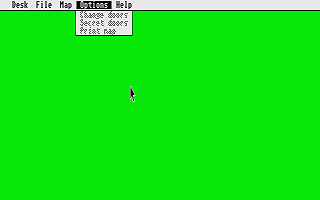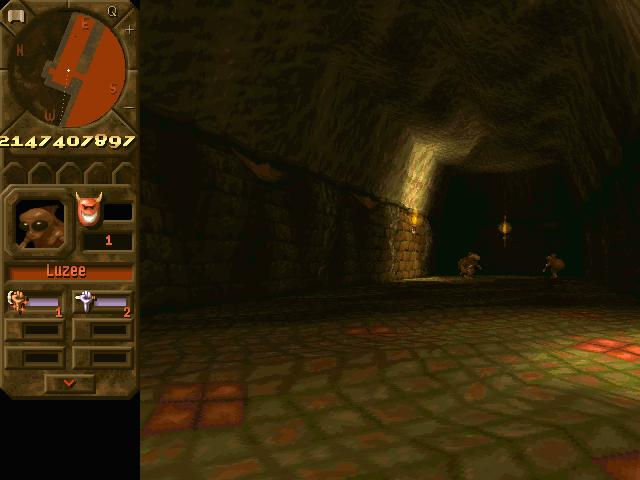
"The second is, when you're thinking about any business model, premium, subscription, free-to-play, value has to exist. Abrams was very different from the first season I watched, but I still felt good about it. "And as we look forward, the two lessons we get are, one, where you are dealing with IP that has existed in the past, even though you're reinventing it for a new audience, you have to do your best to stay true to its essence. "You have to think about value irrespective of the increment of spend that is being made," he said. Wilson insisted EA had learned much from the reaction to Dungeon Keeper, saying, "you have to be very careful when you reinvent IP for a new audience that has a very particular place in the hearts and minds and memories of an existing audience." He added he had personally offered feedback of his own to EA's developers following the release of the game. While it's good to hear the feedback to Dungeon Keeper made its way up to the boss of EA, what's important is what he plans to do about it. One, that it didn't feel like Dungeon Keeper as old school fans remembered it, and two, that the free-to-play model it employed didn't make players feel like they were getting value for their money. Wilson said Dungeon Keeper had sparked two types of feedback among players. In that aspect we didn't walk that line as well as we could have. "For people who'd grown up playing Dungeon Keeper there was a disconnect there. "For new players, it was kind of a cool game," he began. He even admitted EA had "misjudged" its economy. In his defence, Wilson held his hands up, calling what went down with Dungeon Keeper "a shame". I suggested Dungeon Keeper, which has a Metascore of 42, might have been one of those EA missteps Wilson had described. In some areas of the company we had been distracted from that somewhat." At the end of the day we are nothing but for the players that play our games. "I wanted to re-instill a player first culture inside the organisation.
Dungeon master editor pc full#
You come into a company that is inherently good, that is full of inherently good people who come to work to deliver great things every day, but just isn't always manifesting itself in the way you would expect it to - that comes with some challenges. "We'd come off the back of some negativity around some of the things we were doing, and, quite frankly, some of the things we weren't doing well enough. "We are as a company, loved by many, but for some, we've had some challenges on a player level," he said. Previously, he had told me of how he had tried to "re-instill a player first culture" at EA when he starting work as boss. Wilson, who became EA CEO in September 2013, began his response by promising "open and transparent conversations" with Eurogamer on Dungeon Keeper.
Dungeon master editor pc Pc#
The original Dungeon Keeper, released on PC in 1997. So when I sat down with EA boss Andrew Wilson at E3 earlier this month, I wanted to know if the company had learned any lessons from the Dungeon Keeper debacle, and whether the overwhelming negative reaction had reached the very top.


When EA shut down Dungeon Keeper's developer Mythic, known for the Dark Age of Camelot and Warhammer Online massively multiplayer games, was anyone surprised?

That's what stings the most: not that Dungeon Keeper has gone free-to-play, but that it's done so in such soulless fashion."ĭungeon Keeper was mired in controversy from the get-go, with its negative reviews, user backlash and then, somewhat hilariously, a scandal over EA Mobile's attempt to filter out 1-4 star in-app reviews of Dungeon Keeper from the Google Play Store. Every function, every mechanism, every online feature has been tried and tested already by Supercell's money machine and EA is following behind, drooling like a Pavlovian dog. "Yet what we have here is the shell of Bullfrog's pioneering strategy game, hollowed out and filled up with what is essentially a beat-for-beat clone of Clash of Clans.

There are clearly better templates to follow. There are plenty of examples of great games - hardcore PC games - that use micro-transactions, and do so while building an engaged and devoted fanbase. The in-app purchase-fuelled game was slammed by critics, and fans of Bullfrog and designer Peter Molyneux's much-loved 1997 original.ĭan Whitehead dug up a 1/10 in Eurogamer's Dungeon Keeper review, saying: "Free-to-play is not automatically a bad thing. For many, the Dungeon Keeper reboot was yet another depressing example of a treasured game ruined by greedy corporations and their money-grabbing microtransactions.


 0 kommentar(er)
0 kommentar(er)
